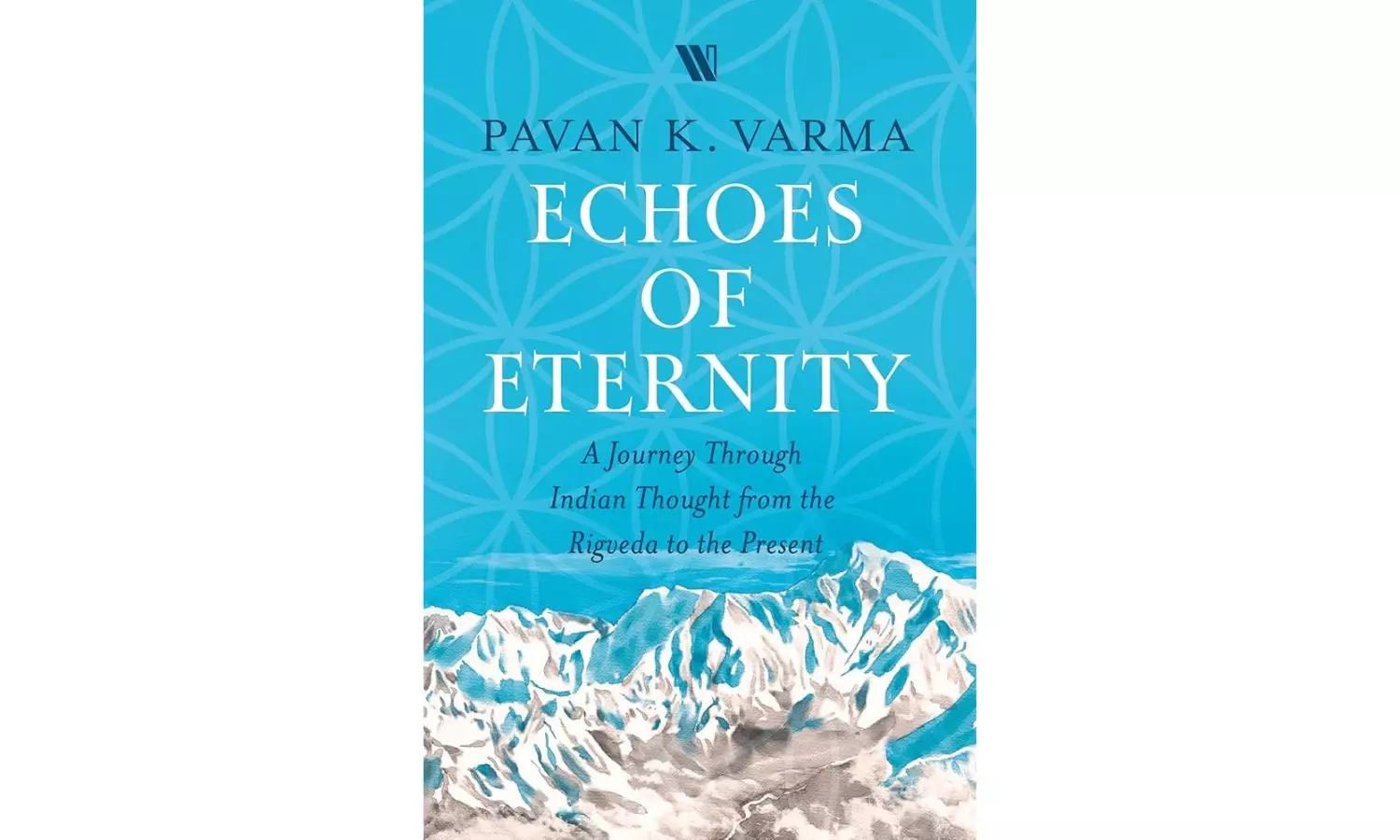Book Review | A Challenging Thought Anthology On The Idea of India
There would be many who will argue that other schools of thought, especially the Charvakas, or the Materialist School, should have been given an extract too

It was a task waiting to be done, bringing together the multiple strands of ideas that emerged from India over the millennia. And it is also a minefield of intellectual choices, omissions and commissions. Pavan K. Varma has indeed earned his position over the last three decades, starting with his book on Mirza Ghalib, his own creative output like that about Yudhishtir and Draupadi, about Krishna in verse, and his long essays on India’s middle class in the modern period, as well as his exploration of the Hindu tradition through the centuries, and his works on Shankaracharya and Tulsi Das’ magnum opus, the Ramcharitmanas. He is a man who has thought long and deep about India in its ideational aspects. He admits there is an element of subjectivity in his choice of texts: “As can be imagined, the greatest challenge in such a task was what to select and what to leave out… Certainly, there was an element of subjectivity involved in the process, and the final decision was mine.”
However, while the latest book must ideally serve the purpose of “an essential primer to understand the brilliance and continuity of our cerebral evolution…”, it should also provoke the intelligent general public to derive justifiable intellectual pleasure from dipping into it as intended by the author. It should serve as a challenge to the idea of India that educated people entertain in their thoughts. It should trigger a critical response, and not just from the academics, but from the general reader as well.
There would be many who will argue that other schools of thought, especially the Charvakas, or the Materialist School, should have been given an extract too. There will be others who would argue the need to include the south Indian bhakti poets, especially from Tamil Nadu. Though Varma has included an extract from the Thirukkural of Thiruvalluvar from the ancient Tamil period, the plea would be for the inclusion of the Tamil epic, Silappadhikaram. Yet Varma can defend himself on this and many other issues.
The more controversial aspect of his choice, though, would be about what he included, rather than excluded. Varma has courted controversy by incorporating Vinayak Damodar Savarkar. The Savarkar critics are sure to say that he had no contribution to make to Indian thought. Varma is challenging the assumption, and he opens it up for discussion. Similarly, the inclusion of Osho will raise eyebrows because the cult hero’s claims to be an intellectual are open to question. Similarly, should Indira Gandhi and Atal Behari Vajpayee, or even Jawaharlal Nehru deserve to be included in this anthology of Indian thought through the ages? These are not easy questions and there are no easy answers. Varma’s anthology should help the reader in critiquing the ideas expressed by the many individuals included in the book. It is not meant for passive consumption.
Echoes of Eternity: A Journey through Indian Thought from the Rigveda to the Present
By Pavan K. Varma
Westland;
pp. 681; Rs 999
